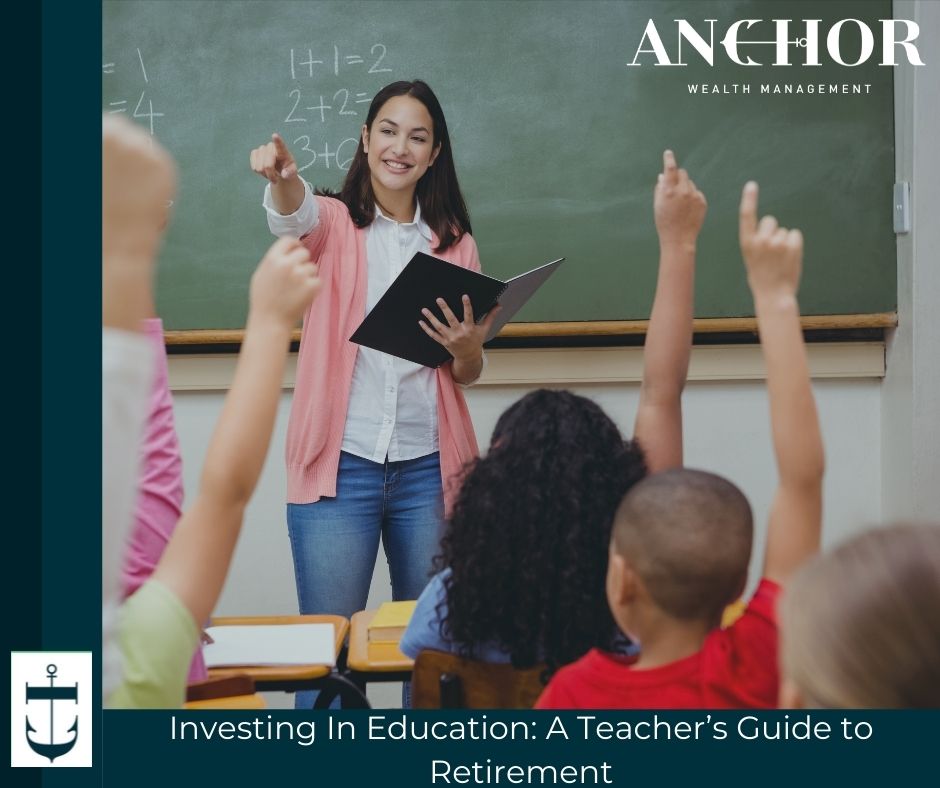
“Class, I have an important announcement.” Ms. Perry paused for effect. “I’m very sorry to tell you that I won’t see you again until next year.”
A few kids gasped. We all stared.
Her eyes twinkled.
Henry shrieked and pointed at her. “That’s because tomorrow is winter break, and we won’t be coming back until after the new year!”
Her face cracked.
We all belly laughed.
She loved books, teddy bears, and manicured nails, and had the most beautiful handwriting. She made everything fun. I felt safe, happy, and well-fed on knowledge during that unforgettable third-grade year.
Maybe you remember a teacher like that. Maybe you are a teacher like that.
While the importance of your work as an educator can’t be overstated, neither can your value. So, in the middle of all that lesson planning, don’t forget to plan for the longest school vacation of your life: retirement.
It will come as no surprise that teachers often retire a few years earlier than other professionals due to sky-high stress levels, difficult working conditions, and poor compensation. (If the phrase “standardized testing” makes your face go numb, you have our sympathy.)
The benefit of an earlier retirement also comes with unique considerations.
Supplemental medical coverage doesn’t kick in until age 65. You’ll need to plan for the most economical and comprehensive way to mitigate any healthcare insurance gaps.
Most teachers are eligible for a pension, which is a substantial and increasingly rare job perk. Utilizing a pension plan makes you ineligible for Social Security. And though pensions tend to be better assets than Social Security they are not often fully funded (in fact, the Illinois TRS funding percentage stands at 41%). This puts their potential benefit to you at risk. Cost-of-living adjustments for public sector pensions are also subject to legislative whims.
While you may not have any control over chaotic political influences, you can take action to secure alternative income sources for your retirement.
A 403(b) account is a great option for supplemental income. It’s funded by your pretax dollars through payroll deductions. Though there is no employer matching, these accounts do have higher contribution limits than other investment accounts. A financial advisor can help you set one up and determine other ways to maximize your retirement benefits and income.
The ideal time to plan the specifics of your retirement is 4-5 years out (or the equivalent of about 8 to 10 school years since we’re sure that’s how you define time). Take stock of your benefits and eligibility. We also strongly suggest engaging the help of a skilled financial advisor if you haven’t already.
If the thought of returning for another school year makes you break out in hives and hide in a closet, don’t wait, contact us directly. We’ll take the planning off your shoulders. Anybody who helps educate hundreds (if not thousands) of children deserves four hours of absolute silence every day, a televised announcement commemorating their contribution to society every third Wednesday, and a fabulous retirement.
Full disclosure: We’re chatty by nature and terrible speechwriters, so we can’t help with the first two items. However, we’ll tackle a pension plan projection, conduct a personal financial audit, and serve your retirement needs with the energy of a senior on graduation day.
You are constantly investing in the next generation. Build the retirement you deserve by investing in your future today.
Dan Leonard, Lead Planning and Trading Associate
